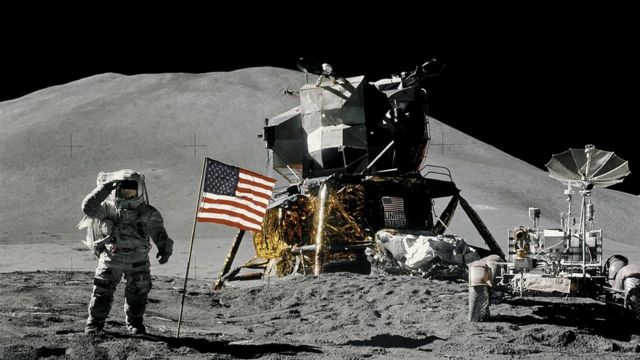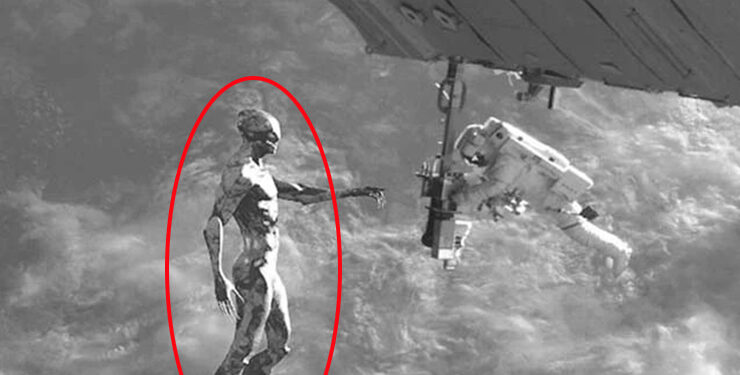The moon, a celestial entity that has captivated human fascination for generations, now takes center stage in a revelation by NASA astronauts that raises eyebrows. Recent statements from these seasoned space explorers suggest that extraterrestrial entities might be considering the moon as a potential outpost, setting the stage for potential conflicts of interest between humans and aliens.

Alien Intrigue on the Lunar Horizon:
The concept that aliens may be eyeing the moon for strategic purposes adds a new layer of intricacy to our comprehension of extraterrestrial engagements. NASA astronauts, with their direct experience in space exploration, have shared observations and encounters hinting at a calculated interest in lunar occupation. This potential clash of interests prompts profound questions about the geopolitical dynamics extending beyond our planet.

The Conflict of Lunar Interests:
As per the astronauts, signs of alien interest in the moon become apparent when human and extraterrestrial objectives collide. The lunar surface, once deemed a neutral ground for scientific exploration, may now be subject to a silent cosmic competition for control and influence. This conflict, they suggest, emerges from divergent agendas and territorial claims that are not fully understood.
Understanding Alien Motivations:

The astronauts’ revelations prompt us to ponder why aliens might be attracted to the moon. Speculations range from the moon’s strategic position for observing Earth to its potential as a resource-rich outpost. The undisclosed motivations of these extraterrestrial entities add an element of mystery and urgency to the ongoing exploration of our lunar neighbor.
The Intersection of Technology and Diplomacy:

As humanity ventures deeper into space, the need for a nuanced approach to extraterrestrial relations becomes increasingly apparent. Technological advancements in space exploration bring us closer to potential encounters with alien civilizations. The delicate balance between scientific exploration, diplomacy, and respecting the unknown intentions of otherworldly entities presents an unprecedented challenge for space-faring nations.
The Role of International Collaboration:
The potential for conflict over lunar interests underscores the importance of international collaboration in space exploration. NASA, alongside other space agencies worldwide, must navigate the complexities of extraterrestrial encounters and work toward establishing protocols for addressing potential disputes. The need for open communication, information-sharing, and a unified approach to understanding and interacting with potential lunar inhabitants becomes paramount.
Public Awareness and Preparedness:
The astronauts’ revelations emphasize the significance of public awareness and preparedness for potential extraterrestrial interactions. As the moon holds a special place in human culture and history, the idea of sharing it with other intelligent beings challenges our preconceptions. Governments and space agencies must consider the ethical implications of lunar conflict and engage the public in a transparent dialogue about the potential consequences and benefits of coexisting with extraterrestrial neighbors.
The Future of Lunar Diplomacy:
The evolving scenario of potential conflict over lunar interests calls for a reevaluation of our approach to space diplomacy. International agreements, ethical guidelines, and frameworks for resolving disputes must be established to ensure a peaceful and collaborative future in space. The ongoing exploration of the moon and beyond offers an opportunity for humanity to engage in responsible and respectful interactions with any potential extraterrestrial entities.
The possibility of aliens expressing an interest in occupying the moon, as suggested by NASA astronauts, adds a new layer of intrigue and complexity to the ever-expanding frontier of space exploration. As we navigate the uncharted territory of potential cosmic conflicts, it becomes imperative to foster international collaboration, public awareness, and ethical considerations to ensure that the exploration of our lunar neighbor is conducted with respect and a commitment to peaceful coexistence in the vastness of the cosmos.





